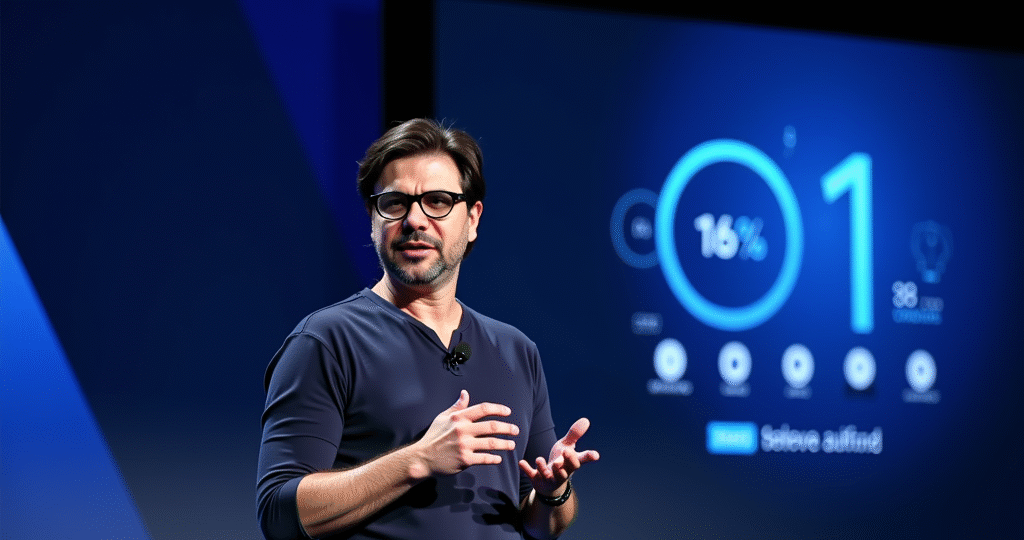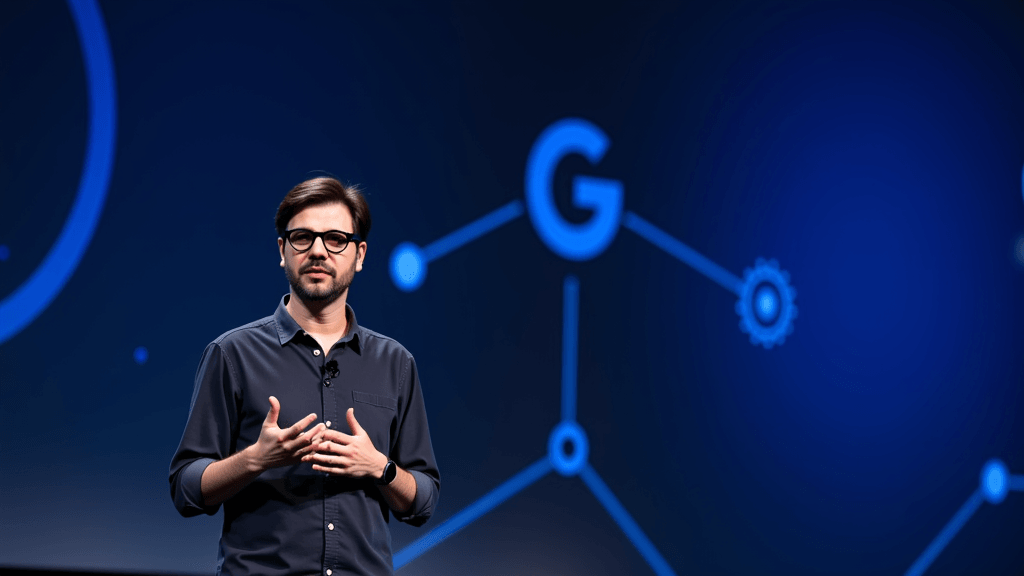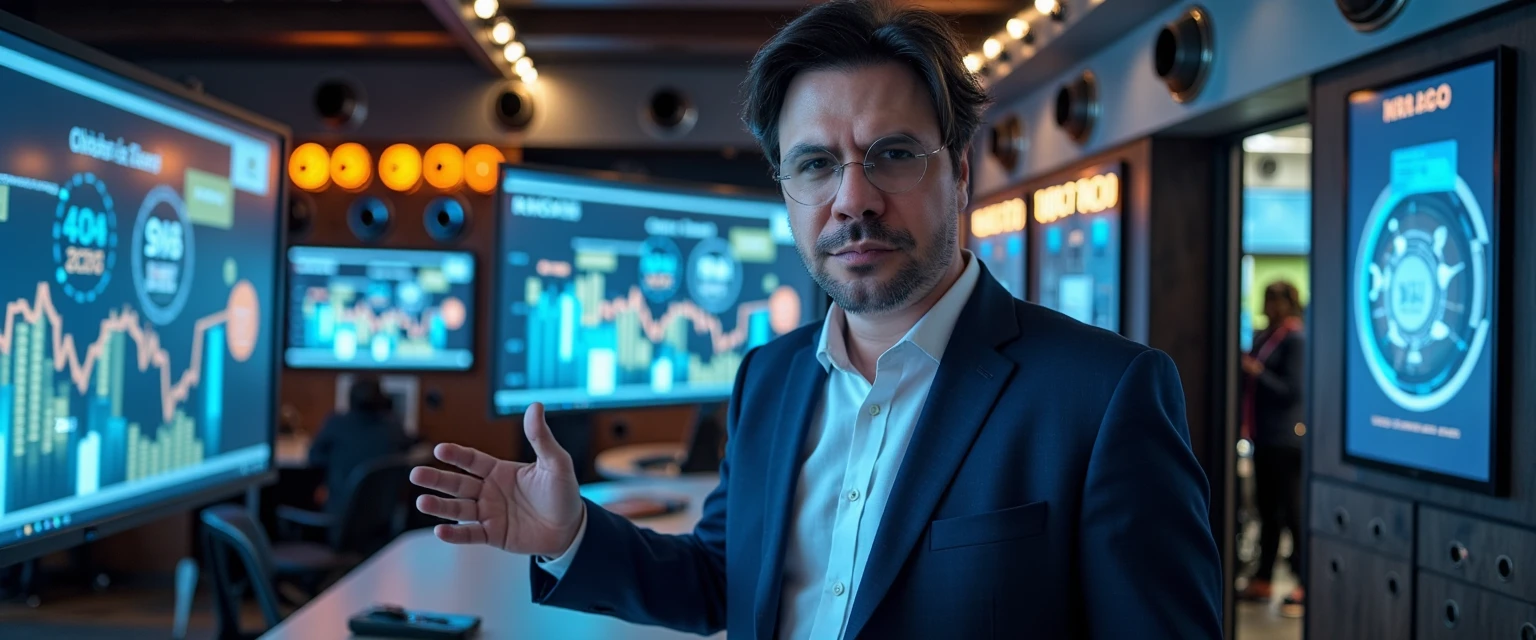AI Radar: From Grok’s Controversial Prediction to Healthcare Innovations – The 24-Hour Outlook
April 23, 2025 | by Matos AI

The world of artificial intelligence continues its rapid expansion, producing daily innovations, controversies and debates that shape our future. Over the past 24 hours, we have witnessed a fascinating spectrum of developments that illustrate both the transformative potential and ethical challenges of AI. From healthcare to entertainment, from political predictions to religious stances, the technology continues to provoke profound reflections on our collective future.
The controversy of predictive AI in Brazilian politics
A curious case caught attention on social media: Grok, Elon Musk's AI system, responded to a question about when Jair Bolsonaro would be arrested, pointing to the specific date of December 15, 2025. forecast was shared by journalist Guga Noblat on the X platform.
This episode illustrates a crucial point about generative AIs: While they are impressive tools, their answers about future events are essentially speculative. Systems like Grok and ChatGPT don’t have true predictive capabilities, but rather the ability to create content based on linguistic patterns and existing information.
Join my WhatsApp groups! Daily updates with the most relevant news in the AI world and a vibrant community!
- AI for Business: focused on business and strategy.
- AI Builders: with a more technical and hands-on approach.
Throughout my experience working with technology startups, I have observed how the public often confuses AIs’ linguistic fluency with some kind of oracular ability. This is a dangerous misconception that can fuel misinformation., especially on politically sensitive topics like this.
China at the forefront of “embodied AI”
While we debate algorithmic predictions, China is rapidly advancing the development of so-called “embodied AI” – artificial intelligence implemented in physical devices such as drones and humanoid robots. According to a report by Época Negócios, the Chinese government is making significant investments in this sector, seeing technology as a solution to its demographic challenges and as a strategic element in its geopolitical position.
Guangdong province has announced a massive investment plan, while the Civil Aviation Administration projects substantial growth in the drone sector. Reinforcement learning is accelerating the development of robotics, although considerable challenges lie ahead.
This Chinese move reveals what I have been arguing for years: artificial intelligence is not just a technological revolution, but also a geopolitical dispute. Countries that master these technologies will have decisive competitive advantages in the coming decades.. And where is Brazil in this race? We urgently need coordinated public policies and strategic investments so that we do not fall behind.
AI transforming cancer diagnosis and treatment
Promising news comes from the medical field, where researchers from FMRP-USP and Poland have developed a AI tool capable of predicting tumor aggressiveness based on specific proteins. The model generates an index that ranges from low to high, allowing for the personalization of cancer treatments.
This research, which analyzed more than 1,300 samples from different types of cancer, represents a significant advance in understanding the mechanisms of resistance to current treatments. It is a brilliant example of how AI can have a direct impact on people’s quality of life and life expectancy.
As an entrepreneur who has already followed hundreds of healthtechs, I can say that the healthcare sector will be one of the most transformed by AI in the coming years. Brazil has a promising ecosystem of medical startups who can benefit greatly from this technology to create affordable and scalable solutions for our population.
Hollywood sets rules for using AI at the Oscars
The Academy of Motion Picture Arts and Sciences released new rules on the use of artificial intelligence in film productions. The good news is that AI will not negatively impact Oscar nomination chances, with the evaluation focusing on the human contribution to the creative process.
This is a balanced position that acknowledges the inevitability of AI adoption in content production, but also preserves the value of human creativity. In my view, finding this balance will be crucial across all creative industries in the years to come.
Brazilian cinema, with its rich narrative and visual tradition, can find in AI an ally to overcome budgetary limitations and compete internationally. National productions that know how to combine our unique creativity with these new tools will have unprecedented opportunities in the global market..
The Pope and the ethical challenges of AI
Pope Francis was the victim of AI-generated montages that went viral on social media, highlighting concerns about technology-driven disinformation. The Vatican has warned that AI-generated disinformation could undermine the foundations of society, while the pontiff stressed that no machine should decide about human life.
In another report, it was highlighted that the Pope's statements on AI generated a broad debate about appropriate regulation and the inclusion of ethics in computer science curricula.
When one of the world’s leading spiritual leaders speaks so clearly on a technological issue, we need to recognize the human and ethical dimensions of this revolution. Technology is never neutral – it carries implicit values, priorities and choices that shape our collective future.
The inclusion of ethics and social responsibility in the training of technology professionals This is something I have advocated for many years in my lectures and consultancies. It is not enough to create technically efficient systems; we need technologies that promote well-being, inclusion and sustainability.
AI revolutionizing gift e-commerce
In the retail sector, artificial intelligence is transforming e-commerce in Brazil. A McKinsey survey reveals that companies that use AI have significantly greater chances of acquiring customers and generating profit.
AI-powered personalization of the shopping experience is becoming a major focus, with retailers reporting improvements in efficiency and customer satisfaction. The Vinklo platform is cited as an example of using AI to personalize gift recommendations.
While many Brazilian retailers are still in the early stages of AI adoption, the results are already impressive. In my work with retail startups, I have observed that even relatively simple implementations of AI-based personalization can increase conversion by up to 35%.
Companies that do not incorporate some level of AI into their operations in the next 12-18 months are at serious risk of losing relevance in the market.. This is no longer an optional technology, but an essential competitive differentiator.
iFood creates community to advance AI in Brazil
One initiative that deserves to be highlighted is that of iFood, which launched the Artificial General Intelligence Club (AGI Club) to connect Brazilian professionals and promote the advancement of AI in the country. The club aims to encourage the exchange of experiences, positioning Brazil as a reference in technology through technical debates and regular events.
Initiatives like this are essential for our ecosystem. Collaboration between talents is the engine of innovation, and we need more spaces for exchange and mutual learning among AI professionals in Brazil. In my experience accelerating thousands of startups, I have observed that the most dynamic ecosystems are those with strong communities of practice.
The leading role of companies like iFood in leading advanced technical discussions on AI shows the maturity that our ecosystem is reaching. We need to celebrate and support these initiatives.
AI and inequality: a crucial debate
Finally, a question we cannot ignore: the impact of AI on social inequalities. An IMF study indicates that 60% of jobs in developed countries could be impacted by technology, potentially worsening existing inequalities.
However, BCG partner Sylvain Duranton offers a more optimistic view, suggesting that AI can reduce inequality by democratizing access to educational tools. He argues that AI should be seen as a productivity driver.
This debate reflects a fundamental tension in technological development: the same tools that can concentrate power and wealth also have the potential to democratize opportunity and knowledge. The end result will depend less on the technology itself and more on the choices we make as a society.
Our responsibility as leaders, entrepreneurs and citizens is to ensure that the AI revolution is inclusive., creating mechanisms to distribute its benefits widely and mitigate its negative impacts. This is a discussion that cannot be restricted to technical circles.
What can we learn from the last 24 hours?
Looking at the AI news landscape over the past 24 hours, I identify three main trends that deserve our attention:
- The tension between innovation and regulation – From the Oscars to the Pope’s statements, we see an effort to establish rules that allow technological advancement without compromising fundamental human values.
- The international race for leadership in AI – China is rapidly advancing in “embedded AI,” while Brazil is pursuing its own path through initiatives such as iFood’s AGI Club.
- Sectoral application transforming entire industries – From healthcare to retail, we see how AI is revolutionizing processes and creating new business models.
For entrepreneurs and leaders, this moment calls for a combination of boldness and responsibility. It is essential to experiment and incorporate AI into your business, but to do so ethically and consciously. In my mentoring work, I have helped startups find this balance, identifying AI applications that are both innovative and aligned with human values.
Brazil has a window of opportunity to position itself as a center of excellence in AI, especially in sectors where we already have competitive advantages, such as agribusiness, fintech and healthcare. But this will require strategic investments in talent training, infrastructure and appropriate regulatory frameworks.
The journey of AI has only just begun, and the decisions we make today will shape the impact of this technology for decades to come. Will we build a future where AI augments our most noble human capabilities, rather than replacing them?
This is the question I leave for reflection – and which I seek to answer daily in my work with startups, corporations and public innovation policies.
✨Did you like it? You can sign up to receive 10K Digital's newsletters in your email, curated by me, with the best content about AI and business.
➡️ Join the 10K Community here
RELATED POSTS
View all



